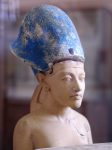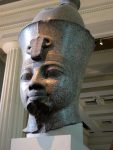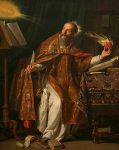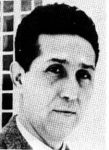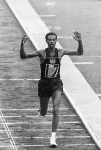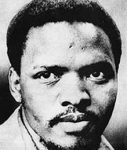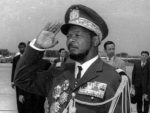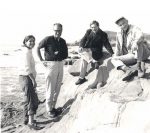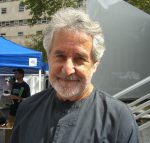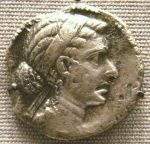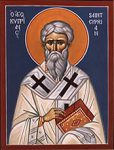King. He liberated Egypt from the Hyksos (Semites who occupied Egypt for several hundred years), and in effect began the Egyptian Empire. Despite its initial success, this and most later empires exemplify the process by which a country loses or nearly loses its independence, becomes obsessed with the search for security, which in turn make its neighbors feel increasingly insecure, which eventually unites the neighbors or otherwise brings invasion and destruction.
King, 18th dynasty, the "heretic" Pharaoh. A religious mystic, possibly a pacifist, he instituted the first monotheism known to human history.
Religious leader. He founded the Muslim Brotherhood, an influential and controversial Islamic fundamentalist movement in Egypt. After the Brotherhood was charged with the assassination of the Prime Minister in 1948, he was murdered.
King. His career expressed militarism, killing, conquest, self-aggrandizement, and vanity, but also confidence, courage, and strength. Like all Pharaohs, he poured Egypt's vast treasure, both from plunder and from the agricultural bounty of the Nile, into palaces, temples, and temple endowments, where it was effectively frozen. One can only imagine the enormous wealth and the changes in human welfare that might have resulted if these resources had been invested in private or public enterprises at the very dawn of recorded history.
Soldier and dictator. His regime (1971-1979) came to epitomize cruelty, torture, and barbarism, and he eventually fled to a life of luxury in Saudi Arabia. He jocularly told a U.S. television broadcast reporter that "in politics there are neither permanent friends nor permanent enemies."
Christian Hermit and later Saint. He sold all his possessions at twenty to give to the poor and entered into a life of strict solitude in the desert of Egypt.
After several decades, during which he reportedly experienced and overcame repeated temptations by the devil, he founded a monastic movement whose influence quickly spread. Members of the movement, often called anchorites, typically rejected books, learning and knowledge, and, in addition to seclusion, emphasized the most resolute asceticism. At its extreme, this meant self-starvation, wearing the same clothes until they rotted, never bathing or cutting hair, living in holes and old wells, carrying weights, or exposing oneself to venomous insect stings.
St. Antony did not indulge in the most violent penances, (although he reputedly never washed his feet), but his followers seemingly strove to outdo one another in self-immolation.
Christian bishop, theologian, later Saint. Augustine's starting point is a ringing affirmation of religious faith. ("Credo ut intelligam": "I believe in order to understand.")
He rejects the prodigal life of his youth (not so prodigal by modern standards but including an illegitimate son), a life vividly described and condemned in his Confessions, perhaps the most influential autobiography ever written. He also rejects the Manichaeism (see Manichaeus) of his youth, along with Donatism (see Donatus), Pelagianism (see Pelagius), skepticism, and Platonism (see Plato), although he incorporates elements of Neo-platonic mysticism into his theology. He accepts Aristotle's emphasis on happiness and on virtue as a means to happiness, but identifies virtue with love of God rather than with Aristotle's golden mean.
Augustine's entire thought, notwithstanding its reliance on logic and its sometimes dense metaphysics, including its defense of a doctrine of predestination, may be summarized by his saying: "Love [God] and do what you will."
Critics of St. Augustine charge him with nurturing an alliance between Church and State that leads to and justifies official persecution of non-believers.
Philosopher. His gnosticism drew on Christianity and many other philosophic and religious strands.
Prime minister and president. A romantic revolutionary, he found success to be disillusioning.
Revolutionary. He fought the white regime and seems to have been murdered by the police.
President, emperor. He became a symbol of absurd grandiosity and waste.
Painter. An opponent of the South African regime and its white supremacy policies, he spent nine years in prison.
Founder of Christianity. Figure on whom the Christian faith is founded. His altruistic ethics, as presented in the four gospels, are revolutionary, especially the injunction to love others as oneself, to love one's enemies, and to assist the poor, the homeless, the hungry, the injured, those in prison, and in general, anyone in need, not only to assist them, but to see God in each one of them.
Queen. The lover of Julius Caesar and then of Mark Antony, she became a symbol of the amatory arts and of high political adventure.

